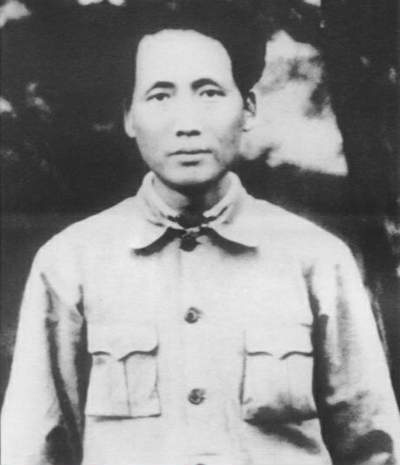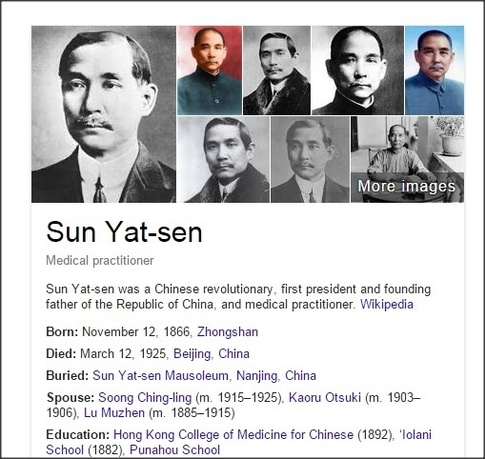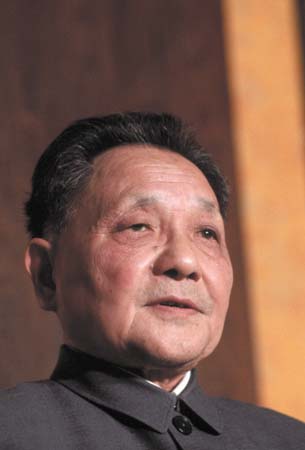November 10, 2015

There are many examples of famous political leaders, including the leader of the Taiping rebellion, Hong Xiuquan; former president of China, Sun Yat-sen1; former Chinese Communist party chairman, Deng Xiaoping. Outside of China, the Hakkas also had many leaders, including former prime minister of Singapore, Lee Kuan Yew and his son and current prime minister Lee Hsien Loong; former president of Taiwan, Lee Teng-hui; current president of Taiwan, Ma Ying-Jeou; former prime minister of Thailand, Thaksin Shinawatra, and his younger sister and former prime minister, Yingluck Shinawatra; former president of the Philippines, Corazon Aquino, and former president of Guyana, Arthur Chung. There is even a Hakka Supreme Court chief justice, Y.K.J. Yeung Sik Yuen, in the island of Mauritius.

Many Hakka farmers (80% of the population were peasants) were strongly penetrated by Communist organization. Communism was a popular idea among the Hakka peasants, because it promised land revolution, i.e. a redistribution of land from the Puntis to the Hakkas. Many of the Communist leaders were, in fact, Hakkas. Zhu De, Chen Yi and Ye Jianying were marshalls in the People’s Liberation Army (解放军, jiefangjun), which is a rank above general. Zhu De and Ye Jianying were instrumental in the campaign to confiscate and redistribute land for community farming. They mobilized peasants into women’s, literacy, health, education and militia programs.

The most important Hakka leader in the CCP was Deng Xiaoping, who led the country after Mao’s death in 1976, and controlled the party at least until 1992. His political success can explain a revival of Hakka studies in the PRC. His background and policies are worth a longer description. Deng was born on August 22, 1904 in Guang’an, a city in the eastern part of Sichuan province. His ancestors can be traced back to Hakkas residing in Mei county in Guangdong, before they undertook the migration to Sichuan 200 years before Deng’s birth. Deng’s father, Deng Wenming, was a mid-level landowner, who had one wife and three concubines (his wife did not bear him any children). Just like many other Hakkas, who were opposed to Qing rule, Wenming had joined several anti-Qing secret societies to advocate for the downfall of the Qing.
Culturally speaking, the Hakkas not only spoke their own dialect, but they also observed their own traditional customs. They took up many of the vocations that were despised by the Puntis (the Puntis refer to the native Cantonese people), including barbers, tenant peasants, itinerant blacksmiths, stone-masons, and miners. Because the Hakkas had to toil in poorer land than the native people, they were known for their firm, and strong spirit, bravery in fighting, independence and adventurousness. Their permanent resource conflicts with the Puntis made them develop a very stubborn, insubordinate fighting spirit. They had a strong nationalist sentiment, and resented Manchu rule over China. Hakkas tended to band together, and were known for their clannishness. The round community houses, called tulou, which were also built to facilitate self-defense, attests to this.
“A Jesuit missionary, going upon some occasion into the province of Honan, found a considerable Synagogue in the city of Kaifengfu. He soon became acquainted with some of its learned chiefs, who introduced him into their Synagogue and showed him one of the Parchments or rolls of the Pentateuch written in Hebrew, together with the books of Joshua, Judges, Samuel, Kings, some of the prophets, and others containing their liturgy and commentaries they owned. They had lost some of the sacred books and some of their targums or paraphrases. This loss was caused by a violent overflowing of the great river, which had laid the capital wholly under the water and had damaged their Torah, or roll of the Pentateuch, and upon which they ordered twelve new copies to be taken from it…..
Comments for “Are Hakkas Literally the “Jews of China” ? “



 RSS Feed
RSS Feed















 November 11th, 2015
November 11th, 2015  Awake Goy
Awake Goy 
 Posted in
Posted in  Tags:
Tags: 














James Perloff said (November 11, 2015):
This is quite interesting. I have often wondered why the Bolsheviks were able to find Asians who were so susceptible to communist ideology and ferocity.
Although it may not directly bear on the Hakkas, I did find some Jewish-Chinese connections while writing my 1999 book TORNADO IN A JUNKYARD.
China’s three major religions–Buddhism, Confucianism, and Taoism–did not exist prior to 500 B.C. Before that, the Chinese revered one god–Shang Ti, which means “emperor of heaven” and sounds similar to the old Hebrew word for God, Shaddai. Like the ancient Jews, the Chinese emperors offered sacrifices to heaven–in fact, the ritual continued until imperial rule ended in the 20th century. John Ross noted in his 1909 book THE ORIGINAL RELIGION OF CHINA: “One of the most honorable prerogatives of the Chinese emperor is the annual sacrifice offered at the winter solstice to the Supreme Ruler of the universe. Even four thousand years ago this sacrifice was a long-established practice. . . . The central act of this sacrifice consists of burning on an altar in the open air the entire body of a young bull as a burnt-offering to God.” This is reminiscent of the temple practices of Old Testament Jews.
There were other coincidences as well. In their book THE DISCOVERY OF GENESIS, C. H. Kang and Ethel Nelson made a case that Chinese culture, especially its unique pictographic language, contains images rooted in the Bible’s first chapters. Just as one example, the Chinese symbol for boat is a vessel with eight mouths (people), just as the ark carried eight persons–Noah, his wife, three sons and their wives.
Also, the ancient Chinese had a seven-day week for a while, which has no basis in any astronomical phenomenon, but is prescribed in the book of Genesis.
None of this proves anything, but it does add some fuel to a theory that there might possibly be an ancient ethnic link between Jews and some Chinese.